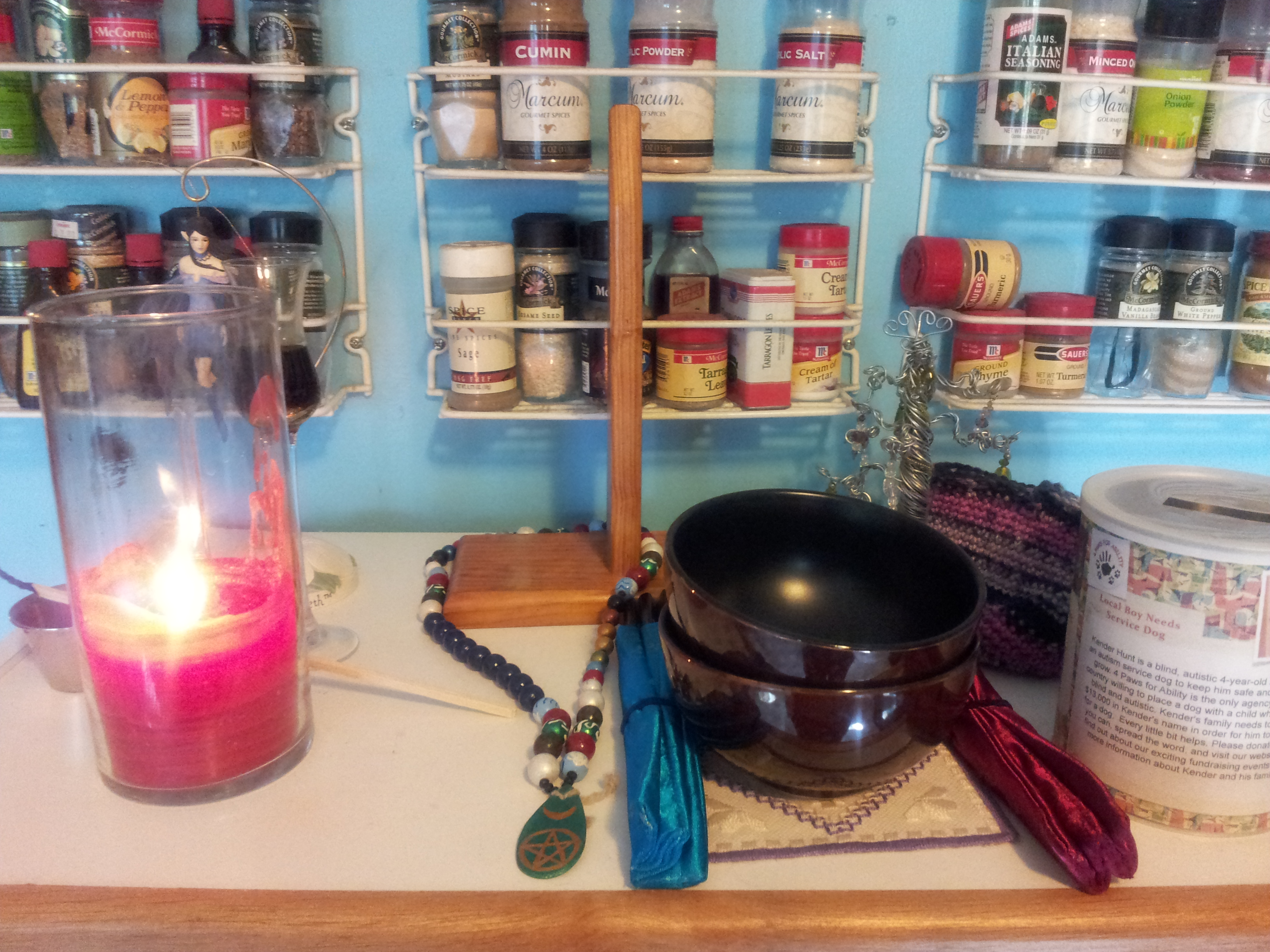 Elizabeth Vongvisith posted a Pagan Piety Survey earlier this month. Here is my response:
Elizabeth Vongvisith posted a Pagan Piety Survey earlier this month. Here is my response:
My craft name is Solinox. I am a 37-year-old female living near Lansing, Michigan. I have been pagan for 23 years, ever since discovering Buckland’s Blue Book in a friend’s backpack in high school. I am Wiccan, currently a first-degree Priestess in the Crossroads Aquarian Tabernacle Church. My patron god is Loki, by His choice, not my own.
I see the Gods and humanity as part of one family. The Gods are like our parents, and we are the children who are still learning and growing. We go to them for hugs and comfort when we need solace, we bring our joy and laughter to them to share, and we ask them for guidance when we are lost. I see my patron Loki more specifically as a teacher, one who has come to show me a different way to see myself and my relationship to the world, one who forces me to be honest and work with that, even inside my own head.
The dictionary definition of “piety” is “devout fulfillment of religious obligations.” I would use this definition as much for Paganism and modern polytheism as for Christianity or any other religion. The specifics of the religious practices may differ, but following them still counts as “piety.” It is still a relevant term. For me personally, it means keeping up the daily practices that I personally consider important to my spiritual relationship with the Gods and the Universe. It is certainly possible to be pious without an establishment authority or written dogma, because religious obligations are those that mean something to the believer and practitioner. If my cousin believes in the Bible and its precepts and laws, then following it is piety for him. If I feel that daily prayer and offering is a duty required of me by my Gods, then following that is piety for me.
When considering impiety, I am brought to the word “hypocrisy,” which means “a pretense of having a virtuous character, moral or religious beliefs or principles, etc., that one does not really possess.” I don’t see this as a place for public judgement, though, particularly in the realm of paganism where there is so little dogma. Some followers of Loki feel a duty to honor Sigyn as well, sometimes with specific rituals for Her. I do not feel that duty, yet I am still a Lokian. I have a duty to honor the cycles of the moon in my tradition, but that does not require that I consider somebody who does not impious. I don’t know what they truly believe and feel called to do. Nobody else knows what I truly believe and the duties I feel called to except me, therefore nobody else has the right to judge my piety.
I do think that having established observances and practices within a group can help to form a sense of community and family. “This is what we do” is a strong bond between believers, and when is it used as a mark of inclusion (rather than exclusion) provides comfort and security to the members of a group. I sometimes feel a little envy and awe when I see large covens come to festivals together. They may dress similarly, wear matching jewelry, have common sayings or behaviors, that identify them as “a group,” and they seem like brothers and sisters. Practices like these bond us together in religion just as they do in culture and blood.
I suspect that, as a whole, pagans would find more acceptance among the rest of the theological world if we had more of these identifying practices, instead of being the eclectic, UPG group that we tend to be. Perhaps that will come someday, but it will not happen while so many of us are still running from the dogmatic religions of our childhoods.
